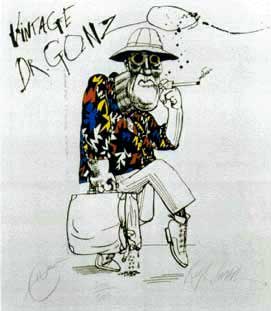Dopes
 It’s remarkable how resilient adolescents are of adults who want to take their drugs away. It’s equally mindboggling how many different ways these young adults can find to get themselves a nice buzz; huffing gasoline, eating jimson weed or in today’s world, popping over-the-counter meds at a rate that some counterculture icons once popped acid in the sixties.
It’s remarkable how resilient adolescents are of adults who want to take their drugs away. It’s equally mindboggling how many different ways these young adults can find to get themselves a nice buzz; huffing gasoline, eating jimson weed or in today’s world, popping over-the-counter meds at a rate that some counterculture icons once popped acid in the sixties.Following a bit of pioneering from Generation X, Generation Next has fully embraced the pill popping culture fomented by powerful and reckless pharmaceutical companies while the federal government turns a blind eye. Instead of fiddling around in the world of pills, the feds in tandem with state and local law enforcement agencies instead focus on the “dirty drugs” more prevalent in back allies and poor ghettos; clean out the crack houses, lock up the heroine junkies, and while you’re at it, sweep the potheads into the mix as well.
At the same time, the U.S. Food and Drug Administration continues to wear out the rubber on their pharmaceutical approval stamp, allowing drugs to pump onto the streets at a pace that would have made even Pablo Escobar jealous. The result has been an entire generation that has learned pills are a lot easier to come by and more acceptable to use than the hackneyed substances of the by-gone era.
True, drugs like amphetamines and barbiturates receive a bit of the “hardcore drug” stigma. But in general, the practice of popping an array of perfectly legal over-the-counter and prescription pills has become quite acceptable among the younger generation. Many kids these days scoff at the idea of smoking a joint, but don’t think twice about washing down a hydrocodone with their curly fries at lunch.
 As usual, the onus of this burgeoning problem has been shoveled over to local law enforcements officers and the various courts they represent. And while they can bust kids for having drugs that weren’t prescribed to them, they face a difficult quandary when dealing with teens that have medication most families routinely give to them each time flu season hits.
As usual, the onus of this burgeoning problem has been shoveled over to local law enforcements officers and the various courts they represent. And while they can bust kids for having drugs that weren’t prescribed to them, they face a difficult quandary when dealing with teens that have medication most families routinely give to them each time flu season hits.Such was the case in Warrensburg this week, when a 17-year-old high school student was busted by the Warren County Sheriff’s Department for endangering the welfare of a child after he allegedly giving a 15-year-old girl some Coricidin pills. Though the drug is commonly sold just about anywhere aspirin is available, stores often keep the pills are behind the counter and sell them only to people 18 years or older because of its Dextromethorphan content.
Known on the “street” as DXM, this drug causes what is called the dissociative effect or more commonly what imbibers call tripping. In lingo terms, one pops a few “triple C’s,” “Skittles,” or “angry red trolls” in order to “dex out” or perhaps “robotrip.” Unfortunately, the pills when taken in large dosages cause some pretty serious problems, including acute anticholinergic syndrome. This nasty little condition can sometimes cause one to experience such pleasures as bleeding from the eyes, seizures, hypertension, and in rare cases, death.
Yes, Coricidin is nothing to take recreationally. But at the same time, it seems a bit reactionary for a school resource officer to arrest a teenager for handing one of his classmates a box of cold medicine. This is especially the case when many parents are more than willing to put their children on a whole host of anti-psychotic and performance enhancing drugs prescribed by the family quack for everything from sleeping problems to the so-called attention deficit disorder.
 The truth is, schools, parents and even society in general need to take a hard look at why people are getting high, rather than what they’re getting high off of and where that substance originated. The time for loading the courts with these bull-shit cases passed when Rockefeller left his drug laws behind more than three decades ago. Instead, it’s time for society to take a progressive look at the reasons so many teens find the unabashed urge to tune out of their surroundings and into a drug haze.
The truth is, schools, parents and even society in general need to take a hard look at why people are getting high, rather than what they’re getting high off of and where that substance originated. The time for loading the courts with these bull-shit cases passed when Rockefeller left his drug laws behind more than three decades ago. Instead, it’s time for society to take a progressive look at the reasons so many teens find the unabashed urge to tune out of their surroundings and into a drug haze.


0 Comments:
Post a Comment
<< Home